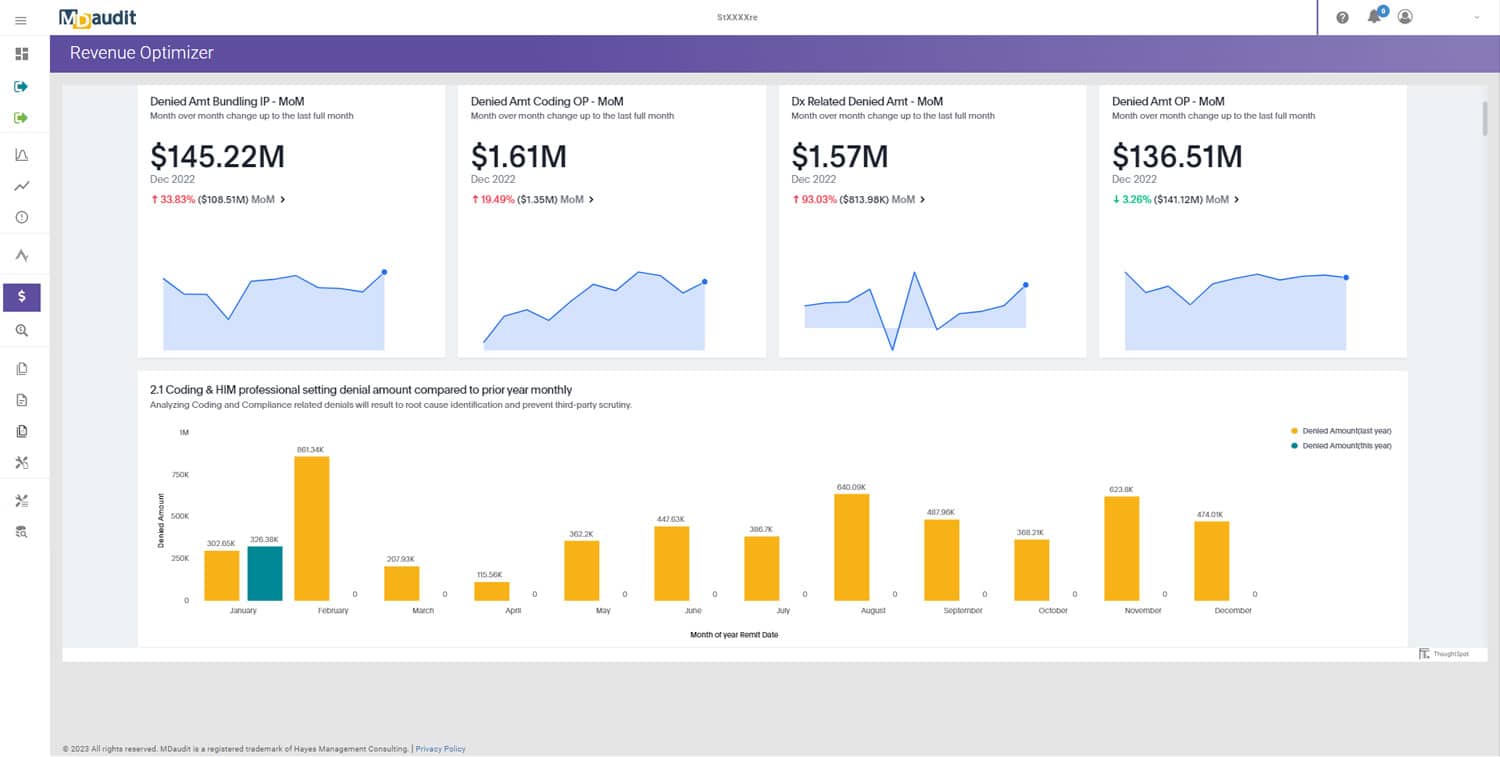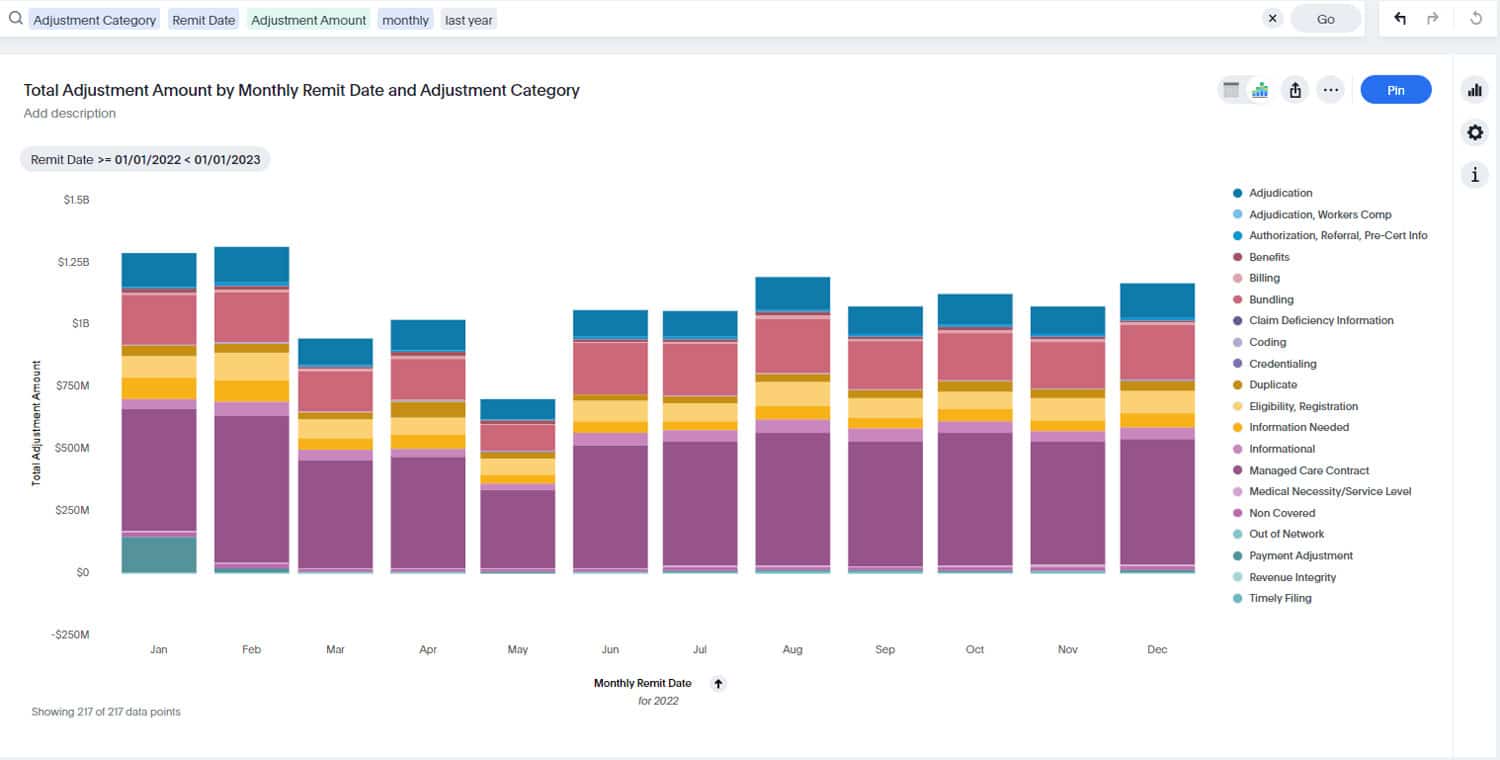Healthcare organizations must navigate competing priorities and demands on a daily basis. The convergence of clinical quality regulations and administrative requirements has resulted in an uptick in errors related to charge capture and revenue cycle management for many providers.
Claim and billing departments are facing a fair share of scrutiny. A provider’s ability to generate claims and bills that fully and accurately reflect the visits, tests, scans, and procedures that patients undergo every day has become a more closely inspected practice in recent years.
Since the pandemic, hospitals are struggling with increased pressure on the bottom line. Labor and supply costs have skyrocketed, and average operating margins — while back in the black — were just 1.3% in July. This places greater focus on complete and accurate charge capture, converting DRGs and ICD-10 codes into actionable claims that are approved for payment the first time.
Payers are also increasing their amount of time to respond to hospital inpatient and outpatient claims while denying greater dollar amounts, the 2022 MDaudit Annual Benchmark Report shows.
Faced with these challenges, 80% of health system executives plan to buy or replace their revenue cycle management (RCM) or finance technology within the next 12 to 18 months, according to a survey from the Healthcare Financial Management Association (HFMA) and Eliciting Insights.
Producing accurate claims and receiving reimbursement in a timely manner allows hospitals to continue to perform their good works that benefit patients and their communities. It’s not surprising that so many facilities are taking a close look at their revenue cycle software and charge capture to create a culture of revenue integrity.
3 Key Considerations for Charge Capture Success
Focusing on key findings from the survey, here are three considerations as hospital and health system executives turn their attention to RCM in general and charge capture specifically.
1. Consider Bolt-On Solutions
Bolt-on solutions are modules that work side-by-side with the core system and provide supplementary functionality. It’s interesting to note that 81% of hospitals that don’t plan RCM purchases would consider a vendor not part of their EHR product set. By comparison, 94% of hospitals that are looking at new or replacement solutions are exploring for the best product to fit their needs.
Recognizing the importance of charge capture and revenue integrity, 100% of respondents would consider either a bolt-on solution or vendors with a preferred partnership with the EHR vendor.
“We evaluate vendors based upon performance, price, and ease of implementation,” stated the revenue cycle vice president at a 900-bed hospital in the Northeast.
2. Look at a Wide Variety of Revenue Cycle Management (RCM) Tools
At a time when many hospitals operate on razor-thin margins, it may seem surprising that so many are exploring RCM solutions. What’s even more surprising is that nearly one-half of hospitals are looking to buy or replace five or more solutions, which points to the importance of charge capture in the revenue process and pent-up demand for such technology.
Among health systems with purchase intent, 19% were looking for charge capture technology, while 18% were exploring revenue integrity.
Taking advantage of the emergence of artificial intelligence and machine learning, 67% of executives plan to invest in tools to automate one or more RCM or finance functions. As the CFO of a mid-size health system in the Midwest said, “We are growing artificial intelligence and related IT systems to become more efficient to … do the same work with 10% less staff.”
3. Demand Actionable ROI
As RCM technology continues to evolve, hospital executives are demanding more from the solutions they purchase and the companies they choose to provide services. Return on investment (ROI) is a critical success factor that vendors must demonstrate.
The survey shows that 81% require an ROI of at least 3:1, and more than 60% want evidence that the product they choose outperforms whatever is included with the EHR. “You have got to demonstrate real-world ROI; don’t give me predictions,” one RCM vice president said.
Errors in the billing and coding of hospital claims cost more than other claim types and offer a significant opportunity for improvement. MDaudit research shows that for every 100,000 claims, a 90% accuracy rate costs a hospital $29 million in lost revenue through missed or wrong DRG codes.
One MDaudit customer identified $25 million in underpayments at just two facilities due to wrongly coded drug utilization.
Discover a path to healthy revenue with proven RCM solutions
Accurate charge capture should be part of a comprehensive revenue integrity program designed to maximize your hospital’s revenue. Discover a path to healthy revenue today.








